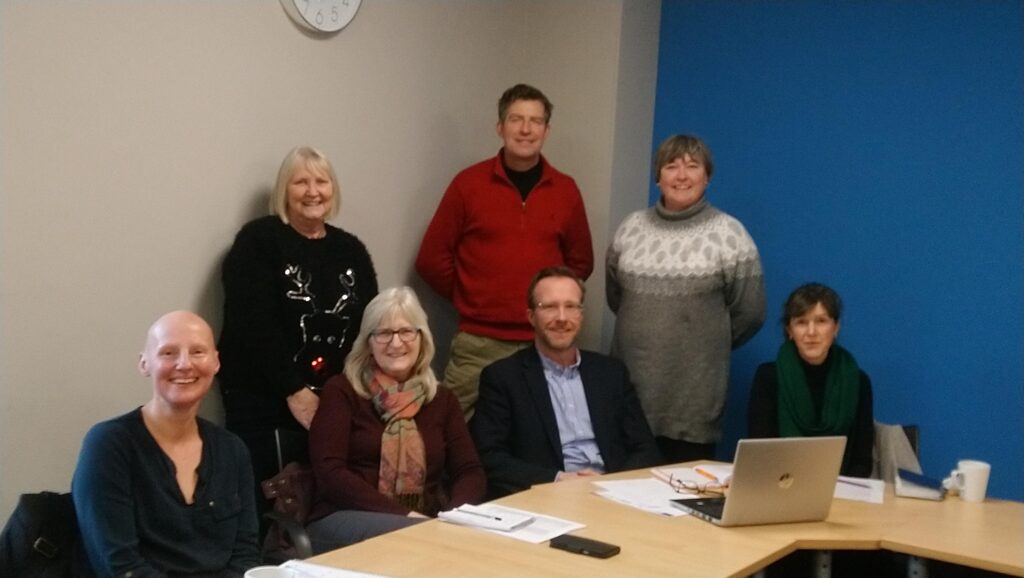Free skills training helps 500 businesses in York, North Yorkshire and East Riding
The Skills Support for the Workforce (SSW) Programme is celebrating a major milestone in the York, North Yorkshire and East Riding region, having provided free skills training to a total of 500 businesses and 1,611 employees since it began in April 2019.
In the last year alone (April 2021 – March 2022), the programme has upskilled over 100 businesses and over 350 individuals through bespoke training designed to fill skills gaps, helping to turn business growth plans into reality. More recently, training has also supported local businesses who have been responding to challenges caused by the coronavirus pandemic.
Since their employees have undergone training, over 30% of business owners have reported actual growth in turnover, and over 50% have reported an increase in productivity. After seeing the success of the training first-hand, nearly 60% of employers now have plans to further upskill staff.

The SSW Programme has been developed to upskill employees in small and medium-sized enterprises (SMEs) and micro-businesses across the York, North Yorkshire and East Riding region. By identifying business’ individual skills needs, it helps to increase productivity and encourage growth through providing fully-funded occupational qualifications, training courses and personal development support.
Three years into SSW, the programme has spent approximately £2.5m supporting businesses in York, North Yorkshire and East Riding out of the available £3.71m fund, made possible through funding from the European Social Fund (ESF) and the Education and Skills Funding Agency.
The training is delivered by Calderdale College – in partnership with York & North Yorkshire Local Enterprise Partnership (Y&NY LEP) and specialist local and regional training providers – and is urging SMEs in York, North Yorkshire and East Riding to take advantage of the free training before the programme completes in March 2023.
Helen Howland, Head of the Skills Support for the Workforce Programme in York, North Yorkshire and East Riding, said: “As we enter the fourth and final year of the SSW Programme, we’re reflecting on the great success we’ve had. The team are so pleased to have reached the major milestone of having helped 500 businesses in York, North Yorkshire and East Riding to upskill their workforces.
“While it’s been a tough few years for SMEs in many respects, meaning that it’s easy to put skills training on the back burner, we want to remind employers about the benefits that it can bring. Whether it’s boosting staff confidence and morale to improve staff retention, or helping them to identify additional revenue streams to increase turnover, the training is specially tailored to provide support in the areas that businesses need it most. And what’s even better is with SSW, it’s free!”
Sam Alexander-Vasey, Chair of Skills and Employability Board at the Y&NY LEP said: “It’s been fantastic to see the positive results that the SSW Programme has had on businesses across York, North Yorkshire and East Riding over the last three years, driving forwards the economy of our region.
“Whether you’re a business in sectors such as food manufacturing, engineering, visitor economy or health and social care; looking to develop your digital skills, lead your team effectively or generally require a greater understanding of your working environment, the SSW Programme really does cater for all types of businesses in York, North Yorkshire and East Riding. We’d encourage SMEs to join the 500 businesses that are already enjoying the benefits that skills training can bring.”
The SSW programme is co-financed by the European Social Fund (ESF) – an EU established fund to help local areas stimulate economic development through skills and job creation. It includes leadership and management training, team working and vocational qualifications and technical skills support, as well as specialised courses across the LEP’s six priority sectors: Bioeconomy, Food Manufacturing, Construction, Engineering, Voluntary and Community, Visitor Economy and Health and Social Care.






